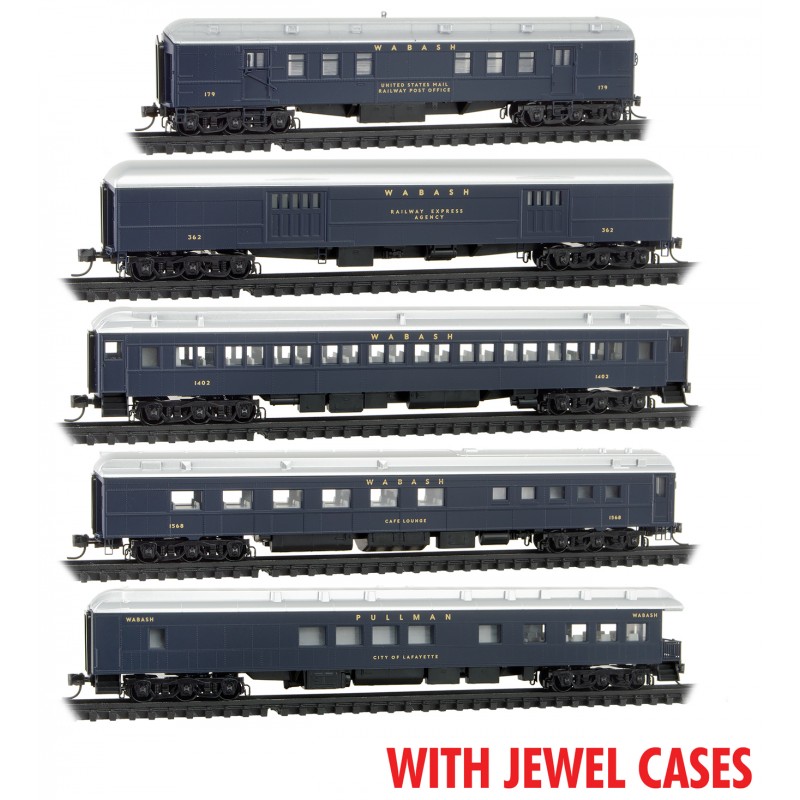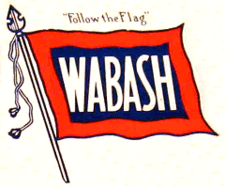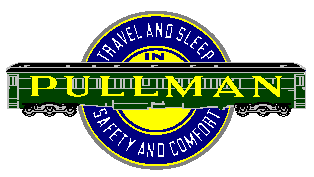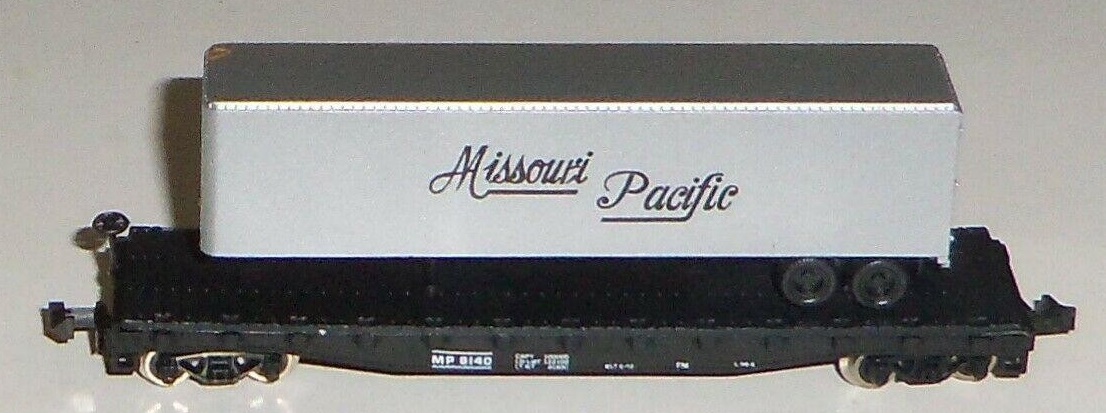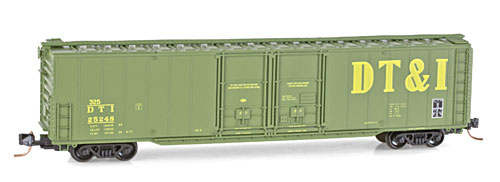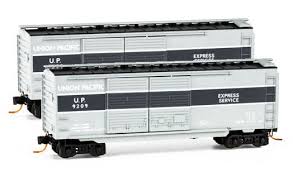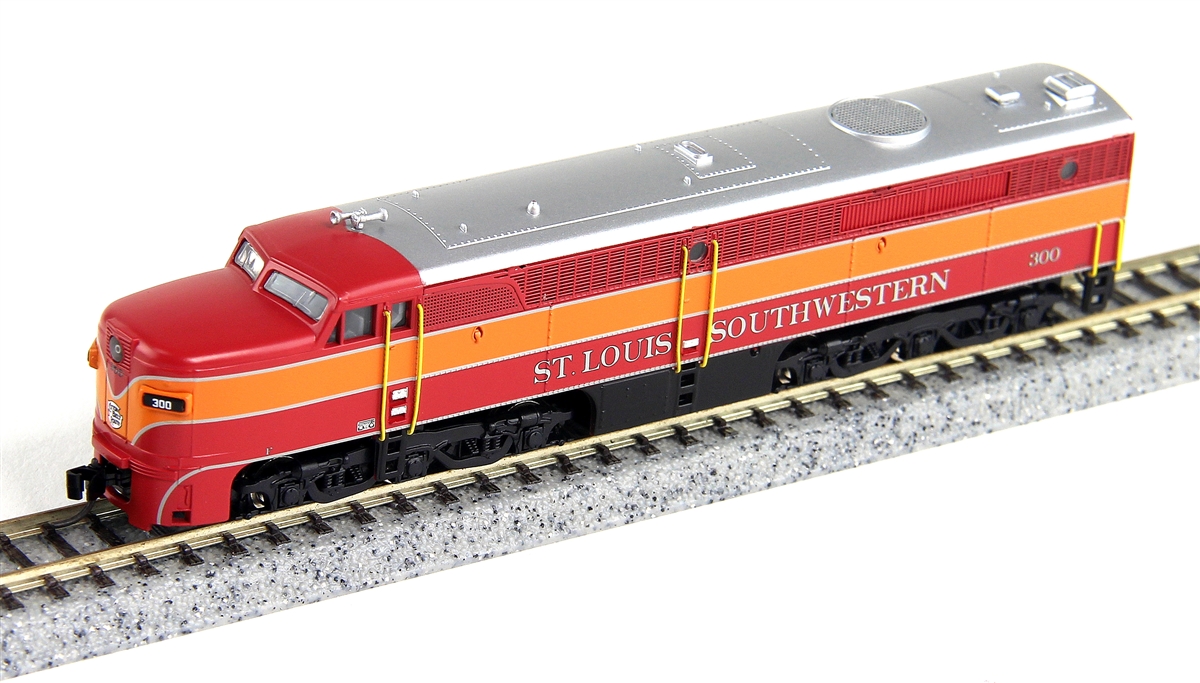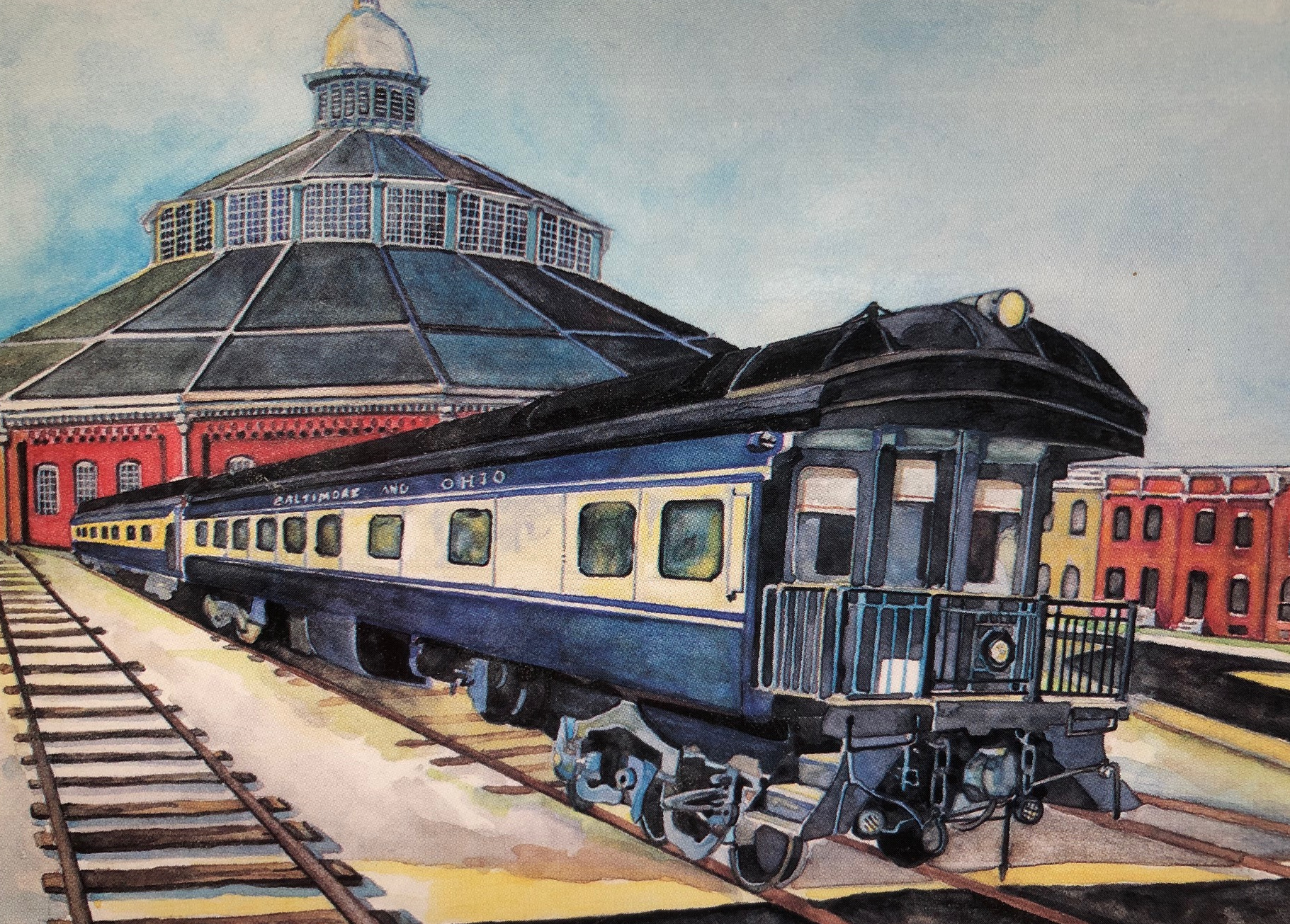Specific Item Information: Wabash Cannonball 5-pk - JEWEL CASE
The Wabash Cannonball was a 1930’s folk song written about a fictional train ride through the scenery of America. The song became so popular that the Wabash Railroad renamed their daytime express train between Detroit and St. Louis “the Wabash Cannonball” in response. It ran from 1950 until the early 1970s upon the creation of Amtrak. These heavyweight passenger cars feature 6-Wheel Passenger trucks.
The Wabash Cannonball was a 1930’s folk song written about a fictional train ride through the scenery of America. The song became so popular that the Wabash Railroad renamed their daytime express train between Detroit and St. Louis “the Wabash Cannonball” in response. It ran from 1950 until the early 1970s upon the creation of Amtrak. These heavyweight passenger cars feature 6-Wheel Passenger trucks.
Model Information: Micro-Trains first ventured into the Passenger Car business in 2009 with the introduction of the Heavyweight RPO car (series 140). Previously, they had purchased cars from other manufacturers which they redecorated themselves. They elected to go with the early 20th century 'Heavyweight' cars. This is perhaps because Kato was already doing such a fine job with the later streamlined, lightweight cars that were popular in the post-war period. Micro-Trains designed a new 3-axle truck specifically for these cars and they have been successful enough that the RPO was joined by two sleepers, an observation car, a dining car, a coach, a parlor car, two baggage cars and even a horse car.
Many of these cars appear in multi-unit sets (often in boxes). These sets are popular as they allow collectors to get several cars for a consist in one shot rather than waiting years for Micro-Trains to release enough variety of body styles in the desired livery to run a prototypical consist.
Many of these cars appear in multi-unit sets (often in boxes). These sets are popular as they allow collectors to get several cars for a consist in one shot rather than waiting years for Micro-Trains to release enough variety of body styles in the desired livery to run a prototypical consist.
Prototype History: Pullman was the leading producer of heavyweight coaches during the 1st half of the twentieth century. They were known for the quality and luxury of the passenger cars. The observation car was a common sight on heavyweight consists during 1920s and 1930s.
Sleeping, parlor and lounge cars of riveted carbon steel body-frame construction were built, owned and operated by the Pullman Company. These cars were better known by the name "Heavyweight Cars." Between March 1907 and February 1931 there were 8011 cars built.
Sleeping, parlor and lounge cars of riveted carbon steel body-frame construction were built, owned and operated by the Pullman Company. These cars were better known by the name "Heavyweight Cars." Between March 1907 and February 1931 there were 8011 cars built.
Road Name History: Wabash was the product of an 1889 restructuring (under the leadership of Jay Gould) of several railroads centered around the Wabash St. Louis & Pacific. Wabash was unusual in that it evenly straddled the border between “eastern railroads” and railroads west of the Chicago-St.Louis-Memphis-New Orleans border. In the west, Wabash connected Kansas City, Omaha and Des Moines. Heading east from those points, Wabash reached St. Louis, Decatur, and Chicago. Then, clearly in the eastern territory, Wabash reached Fort Wayne, Detroit, Toledo and finally Buffalo. Total length was about 2500 miles. The Detroit to Buffalo line cut though southern Ontario, Canada on Canadian National trackage rights. That route also required a car float operation across the Detroit River. As a result, Wabash’s Buffalo traffic was a fraction of that of competitors Nickel Plate and New York Central. However, Wabash’s Detroit-Kansas City and Detroit-St. Louis service was a force to be reckoned with and well patronized by Michigan’s automakers. The Wabash Cannonball was the name of the daytime passenger run between Detroit and St. Louis. The song of the same name was a hit long before it was ever applied to the train itself. Wabash bought control of the Ann Arbor in 1925 and soon after, Wabash and Delaware & Hudson jointly bought control of the Lehigh Valley (Wabash’s principle connection in Buffalo.) This got the attention of the Pennsylvania Railroad who bought control of Wabash under the auspices of their “Pennsylvania Company” subsidiary in 1928.
As PRR planned their merger with New York Central, it became obvious that they could not take Wabash with them. The first step was to transfer control of Ann Arbor from Wabash to Detroit Toledo & Ironton (also in the Pennsylvania Company family.) Up to that point, Ann Arbor was routinely included in the official Wabash system map. Then PRR arranged for Wabash to be included in the Norfolk & Western-Nickel Plate-Pittsburgh & West Virginia merger that was being planned. PRR didn’t overtly control the N&W but they did have considerable influence over them. The deal was made and the new, larger Norfolk & Western leased the Wabash for 50 years in October of 1964. At that point, Wabash became a paper railroad. They were finally merged out of existence by N&W successor Norfolk Southern in the 1990s.
As PRR planned their merger with New York Central, it became obvious that they could not take Wabash with them. The first step was to transfer control of Ann Arbor from Wabash to Detroit Toledo & Ironton (also in the Pennsylvania Company family.) Up to that point, Ann Arbor was routinely included in the official Wabash system map. Then PRR arranged for Wabash to be included in the Norfolk & Western-Nickel Plate-Pittsburgh & West Virginia merger that was being planned. PRR didn’t overtly control the N&W but they did have considerable influence over them. The deal was made and the new, larger Norfolk & Western leased the Wabash for 50 years in October of 1964. At that point, Wabash became a paper railroad. They were finally merged out of existence by N&W successor Norfolk Southern in the 1990s.
Brand/Importer Information: Micro-Trains is the brand name used by both Kadee Quality Products and Micro-Trains Line. For a history of the relationship between the brand and the two companies, please consult our Micro-Trains Collector's Guide.
Manufacturer Information:  Micro-Trains Line split off from Kadee Quality Products in 1990. Kadee Quality Products originally got involved in N-Scale by producing a scaled-down version of their successful HO Magne-Matic knuckle coupler system. This coupler was superior to the ubiquitous 'Rapido' style coupler due to two primary factors: superior realistic appearance and the ability to automatically uncouple when stopped over a magnet embedded in a section of track. The success of these couplers in N-Scale quickly translated to the production of trucks, wheels and in 1972 a release of ready-to-run box cars.
Micro-Trains Line split off from Kadee Quality Products in 1990. Kadee Quality Products originally got involved in N-Scale by producing a scaled-down version of their successful HO Magne-Matic knuckle coupler system. This coupler was superior to the ubiquitous 'Rapido' style coupler due to two primary factors: superior realistic appearance and the ability to automatically uncouple when stopped over a magnet embedded in a section of track. The success of these couplers in N-Scale quickly translated to the production of trucks, wheels and in 1972 a release of ready-to-run box cars.
Micro-Trains Line Co. split off from Kadee in 1990 to form a completely independent company. For this reason, products from this company can appear with labels from both enterprises. Due to the nature of production idiosyncrasies and various random factors, the rolling stock from Micro-Trains can have all sorts of interesting variations in both their packaging as well as the products themselves. When acquiring an MTL product it is very important to understand these important production variations that can greatly enhance (or decrease) the value of your purchase.
Please consult our Micro-Trains Collector's Guide

Micro-Trains Line Co. split off from Kadee in 1990 to form a completely independent company. For this reason, products from this company can appear with labels from both enterprises. Due to the nature of production idiosyncrasies and various random factors, the rolling stock from Micro-Trains can have all sorts of interesting variations in both their packaging as well as the products themselves. When acquiring an MTL product it is very important to understand these important production variations that can greatly enhance (or decrease) the value of your purchase.
Please consult our Micro-Trains Collector's Guide
Item created by: CNW400 on 2023-05-16 09:39:48. Last edited by CNW400 on 2023-05-16 09:40:22
If you see errors or missing data in this entry, please feel free to log in and edit it. Anyone with a Gmail account can log in instantly.
If you see errors or missing data in this entry, please feel free to log in and edit it. Anyone with a Gmail account can log in instantly.


